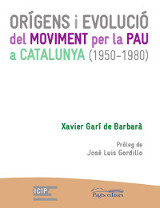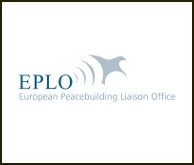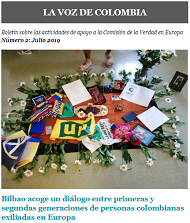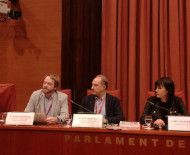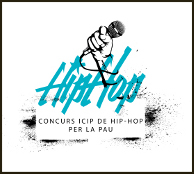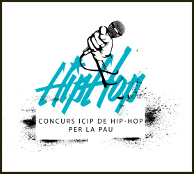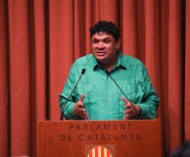Orígens i evolució del moviment per la pau a Catalunya (1950-1980) is a book based on Xavier Garí’s doctoral thesis , which explores the origins and entrenchment of the peace movement in Catalonia during the period between 1950 and 1980. The author provides an extensive description of the Catalan branch of Pax Christi International and the Barcelona group Amics de l’Arca (Friends of the Ark), pioneers of the movement and responsible for introducing the doctrine of peace and nonviolence in a society ruled by a military and repressive culture. He also elaborates on other important initiatives in the consolidation of the movement such as Justícia i Pau, the Víctor Seix Polemology Institute and the Conscientious Objectors campaign.
“Xavier Garí de Barbarà’s book is the most important contribution to the knowledge of the origins of Catalan pacifism of Christian roots that has been made to date.”– José Luis Gordillo (prologue).
The author
Xavier Garí de Barbarà (Barcelona, 1974) holds a doctorate in Contemporary History and is a professor in the Faculty of Humanities at the International University of Catalonia. He is the founder of the Center for Nonviolence Studies of Catalonia and the director of the School of Peace and Conflict at Menéndez Pelayo International University in Barcelona. His fields of research are the history of peace, the theory and strategy of nonviolence, and conflict management.
Author: whads
The ICIP becomes a new member of EPLO
The ICIP has become a new member of the European Peace Liaison Office (EPLO), an independent civil society platform of European NGOs, networks of NGOs and think tanks which are committed to peacebuilding and the prevention of the violent conflict.
EPLO aims to influence the EU so that it promotes and implements measures which lead to sustainable peace between states and within states and peoples, and which transform and resolve conflicts non-violently. EPLO wants the EU to recognise the crucial connection between peacebuilding, the eradication of poverty, and sustainable development worldwide and the crucial role NGOs have to play in sustainable EU efforts for peacebuilding, conflict prevention, and crisis management.
The request of membership of the ICIP was approved by the EPLO General Assembly on Thursday 28 March. The ICIP is the first Spanish member of the platform.
New bulletin: “La Voz de Colombia”
ICIP has published a new issue of the bulletin “La Voz de Colombia”, which contains updated information on the work that is being carried out in Europe by the Commission for the Clarification of Truth, Coexistence and Non-Repetition of Colombia. The objective of this tool is to connect all the nodes, organizations and people who work on the Colombian peace process from Europe and to provide a hub for the central exchange of all the news and progress related to their work.
The third edition of the bulletin highlighted the organization by the Commission of the first meetings of Colombian exiles in Europe, which took place in Bilbao from 6-9 July. The publication also includes the latest activities of European nodes in countries such as Italy, Germany, France or Switzerland, as well as other resources of interest.
If you are interested in receiving the bulletin, send an email requesting a subscription to comunicacio.icip@gencat.cat with your name, surname and your personal email address.
ICIP calls for political autonomy and an effort to establish alliances with all social, institutional and academic actors involved in peacebuilding
The president and the director of ICIP (International Catalan Institute for Peace), Xavier Masllorens and Kristian Herbolzheimer, respectively, appeared before the Commission on Foreign Affairs, Cooperation, Institutional Relations and Transparency of the Parliament of Catalonia on Thursday to present the institution’s Activity Report for the years 2017 and 2018.
In his address, the President called for “the political, organizational and operational autonomy of ICIP,” and urged parliamentary groups and peace organizations to strengthen their relationship with the institution: “Trust in ICIP, make ICIP your Peace Institute, use it to learn about issues related to peace and conflict,” said Masllorens.
For his part, the director of ICIP emphasized the “great potential impact of the institution in Catalonia and beyond” and “the desire to strengthen alliances and collaboration with social, institutional and academic actors.” He also talked about creating synergies at different levels: “We are faced with the challenge of gaining everyone’s trust,” Herbolzheimer told the parliamentary groups. In this sense, the director of ICIP highlighted the work that the institution has done to promote social and political dialogue in Catalonia, in a context of increasing polarization. This work is based on “CaReS”: Curiosity to understand different positions, Respect for people regardless of their ideas, and Self-criticism, because no one owns the absolute truth.
For their part, the spokespersons for the parliamentary groups present on the Commission praised the extensive work carried out by ICIP, despite budget constraints. Ciutadans representative Susana Beltran thanked ICIP for its efforts to include the full range of perspectives when addressing the Catalan conflict, but she regretted that political parties do not exercise more direct control over the election of the institution’s Governing Board members. She also referred to a lack of an “integrated perspective” in ICIP’s highest decision-making body.
Representative Ferran Pedret, speaking in the name of the Socialist group, emphasized ICIP’s work towards becoming a “leading international institution.” ERC representative Ruben Wagensberg praised ICIP’s work as a “generator of opinion and rigor,” while the representative for Junts per Catalunya, Francesc de Dalmases, highlighted ICIP’s efforts to establish international alliances and increase networking.
Coalition of Families of the Disappeared in Algeria, ICIP Peace in Progress Award 2019
The Coalition of Families of the Disappeared in Algeria (CDFA) was created in Paris in May 1998 by a group of mothers of disappeared persons in Algeria in order to raise national and international awareness about the cases of enforced disappearances that took place during the Algerian Civil War in the 1990s. That same year the association organized a demonstration in front of the National Observatory of Human Rights in Algiers which, since then, has become a weekly event.
Since its establishment, CFDA has coordinated the movement of the mothers of the disappeared and has promoted the creation of various committees throughout France, including SOS Disparu(e)s. The group is currently the only organization that offers assistance and support to relatives of disappeared persons in Algeria, despite the lack of institutional recognition in the country. The organization strives to achieve a peaceful and democratic transition in Algeria with the establishment of a process for truth, justice and reparation and for the full observance of fundamental human rights and freedoms.
The activity of CFDA and SOS Disparu(e)s includes the production of more than 5,400 dossiers with information related to disappeared persons. As a result of this work, the organization reported around 5,000 cases to the United Nations Working Group on Enforced or Involuntary Disappearances. CFDA is a member of the Euro-Mediterranean Federation Against Enforced Disappearances and has observer status in the African Commission on Human and Peoples’ Rights.
The ICIP ceremony award took place on Monday 21st September, International Day of Peace, at the Parliament of Catalonia. The ceremony was presided over by the president of Parliament, Roger Torrent; and ICIP president Xavier Masllorens.
Solidarity with refugees and the denunciation of violence against women, main themes of the winning video clips in the 3rd Hip-Hop for Peace Contest
After evaluating all of the entries submitted, the jury of the third edition of the ICIP Hip-Hop for Peace Contest, corresponding to 2018, has announced the winners. This competition aims to promote creativity and give visibility to the commitment of young people in the field of peace culture. In this third edition, the award-winning entries address very current issues such as the refugee crisis, the defense of feminism and the denunciation of violence against women. There were also messages defending respect, equal opportunity, social inclusion and non-discrimination because of race or sexual orientation.
In Category 1, aimed at students in secondary school, senior high school and vocational training school in Catalonia, the winning video clips are:
Salgamos de esta celda (Let’s leave this cell), a video clip created by “Las fugitivas del silencio,” made up of students from Manuel Vázquez Montalbán Secondary School in Sant Adrià del Besòs (Barcelonès), who have won the possibility of recording in a professional studio. The piece launches a message of solidarity with refugees, especially women.
You say you feel sorry for refugees
Yet in the street you glare at them
(…) All of this, as a woman, is even more complicated
Traveling for their future, with children or while pregnant
Without any protection, at risk of being abused
¡Basta! (Enough!), a video clip created by students from Vilanova del Vallès (Vallès Oriental) Secondary School, winners of a hip-hop workshop. This is a piece denouncing the abuse of women and is based on the “No means no” slogan.
If women say no means no
No, no no! Respect!
Tots som iguals (We are all equal), a video clip created by young people from L’Àngel Special Education Center, in Amposta (Montsià), awarded a special mention. In this case, the piece calls for social inclusion, equal opportunity and respect for people with special needs.
There is only one race, the human race
We are all brothers, even if we don’t share the same blood
The only disability is not realizing that we are all equal
In Category 2, aimed at young people between the ages of 12 and 25 who participate in youth, cultural, civic or socio-educational action centers in Catalonia, the winners are:
Infame, caprichosa y estúpida (Despicable, capricious and stupid), a video clip created by young people from the Vitamina project of the Carta de la Pau Foundation, winners of a recording in a professional studio. The video clip also touches on the subject of solidarity with refugees fleeing military conflicts and calls for the free movement of people.
No one chose place of birth
I am lucky not to be hungry
(…) Closing borders is an act that hurts us
We become prisoners of an imaginary line
Diversitats (Diversities), a video clip created by young people from the Torre Bassas Youth Center in Rubí (Vallès Occidental), winners of a hip-hop workshop. This piece aims to denounce prejudice and discrimination, with a particular emphasis also on gender violence.
I respect your sexuality and your way of thinking
Open your mind so that you can move forward
(…) You judge people unnecessarily
Without knowing what they think or what they do
Reflejos (Reflexes/Reflections), a video clip created by a group of young people in work-linked training at Càritas-Girona, winners of a special mention. In this case, the piece is a cry against racism that denounces, in first person, the discrimination that young people experience.
We want to study, we want to move forward
Nowhere do they let us in
We walk down the street while people glare
Because they think, without looking, that we are terrible
The award-winning groups will be honored at an institutional event that will take place at 12 noon on Thursday 28 February at the ICIP offices (Tapineria, 10, 1st floor, Barcelona). Participants in the event include ICIP president Xavier Masllorens and the head of the Catalan Youth Agency, Cesc Poch. The event is closed to the public and attendance is by invitation only.
The ICIP Hip-Hop for Peace Contest, which has reached its third edition, aims to give visibility to the commitment and creativity of young people in the field of peace culture. The event is organized in conjunction with the Department of Education and the Directorate-General for Youth of the Generalitat of Catalonia. A total of sixteen video clips were submitted in this third edition.
ICIP announces the fourth edition of the ICIP Hip Hop for Peace Contest
The call for entries for the fourth edition of the ICIP Hip Hop for Peace Contest was launched in September. The contest aims to give visibility to the commitment and creativity of young people in the field of peace culture.
As in previous editions, the contest has two categories. The first one is open to students in secondary school, vocational training school and senior high school in Catalonia; the second category is open to young people between the ages of 12 and 25 who participate in youth, cultural, civic or social-educational action centers or organizations in Catalonia. In both cases, participating groups must have at least three members.
To participate, groups must compose a hip-hop piece with original rhymes and make a video recording of its performance lasting no more than four minutes. The lyrics of the songs must be related to the celebration of diversity; coexistence in urban areas or schools; criticism of violence; the denunciation of human rights violations; solidarity with people who are trapped by, or fleeing, armed conflict; or the role of youth in peacebuilding.
The deadline for submitting videos is 30 January 2019, coinciding with the commemoration of the School Day of Nonviolence and Peace (DENIP).
The contest is being organized in conjunction with the Department of Education, the Directorate-General for Youth of the Generalitat of Catalonia, and the Catalan Agency for Cooperation to the Development.
ICIP passes on the torch of the secretariat of the International Network on Business and Human Rights
ICIP has passed on the torch of the Technical Secretariat of the International Network on Business, Conflict and Human Rights Research (BCHR Network) to the African Law Foundation (AFRILAW) in December.
ICIP, within the framework of the work program on Business and Human Rights, has held the secretariat of the network for the last three years, since its inception. The functions carried out include the holding of an annual conference with the participation of network members (made up of universities, research centers and NGOs from around the world), the publication of a monthly newsletter and management of the website.
AFRILAW, the organization that is taking over, is a Nigeria-based NGO dedicated to the promotion of human rights and social justice. Its coordinator, Okereke Chinwike, is a legal expert on human rights and development and has extensive experience in the field of business and human rights. The many organizations he has collaborated with include OECD Watch Network, International Advocates Working Group (IAWG), BankTrack/EPA Campaign, Coalition for Human Rights in Development, USA, Human Rights Defenders in Development Campaign Advisory Committee, Africa Coalition on Corporate Accountability (ACCA), Leigh Day LLP, UK, ICoCA, Private Security Governance Observatory, International Accountability Partnership (IAP), Geneva Center for Security Sector Governance (DCAF) and the Global Forum on Law, Justice and Development (GFLJD).
AFRILAW was the only candidate nominated to take over the BCHR Network secretariat. The challenges it has set include strengthening contacts between stakeholders and policymakers, and strengthening the promotion of research.
BCHR Network
The International Network on Business, Conflict and Human Rights Research brings together members from universities, NGOs and research centers that are relevant in the field of armed conflict and the promotion of world peace. Participants include, for example, the universities of Georgetown, Quebec, Sorbonne, Leiden, Greenwich, Ottawa and Australia; and centers and foundations such as SIPRI, Fafo, the International Committee of the Red Cross, Global Witness, PeaceNexus and DCAF.
The network’s main objective is to investigate the causes, dynamics and consequences of business activity in contexts of armed conflict, the impact of this participation on human rights and the legal responsibilities that may arise. The initiative to create such a research network came in the autumn of 2011, when ICIP organized its first international seminar on business and human rights in Barcelona, with the aim of sharing the various agendas on this subject. These seminars continued, with subsequent editions in Barcelona in 2013, in London in 2014, and in Geneva in 2015, after which the group was formally established.
ICIP Peace in Progress Award 2019, pending resolution
The deadline for submitting nominations for the 2019 ICIP Peace in Progress Award was Thursday 13 June. The ICIP Governing Board –in charge of granting the award– will study the submitted nominations and announce the winner on 21 September, the International Day of Peace. As in the past, an awards ceremony, which is open to the public, will be held sometime in the following months.
The ICIP Peace in Progress Award aims to publicly recognize individuals, entities or institutions that, in an outstanding and extensive manner, have worked for, and contributed to, the promotion and building of peace. The award consists of public recognition, a sculpture created by the Nobel Peace Prize winner, artist and activist Adolfo Pérez Esquivel, called Porta del Sol, and a financial prize of 6,000 euros. The award is presented at an institutional award ceremony which takes place annually at the Catalan Parliament.
Previously granted
In previous editions, the award was granted to the Mexican organization Cauce Ciudadano (2018), the activist Arcadi Oliveres (2017), Peace Brigades International (2016), the Capuchin friar Joan Botam (2015), WILPF (2014), the ex-general Jovan Divjak (2013), Madres de Soacha (2012), and the struggle of conscientious objectors and “insubmisos” (people who refuse to do military service or any substitute social work) represented by Pepe Beúnza. The same year, the Parliament of Catalonia was honored with an extraordinary edition of the award.
ICIP Peace in Progress Award 2020, pending resolution
The deadline for submitting nominations for the 2020 ICIP Peace in Progress Award was Wednesday 1st July. The ICIP Governing Board –in charge of granting the award– will study the submitted nominations and announce the winner on September.
The ICIP Peace in Progress Award aims to publicly recognize individuals, entities or institutions that, in an outstanding and extensive manner, have worked for, and contributed to, the promotion and building of peace. The award consists of public recognition, a sculpture created by the Nobel Peace Prize winner, artist and activist Adolfo Pérez Esquivel, called Porta del Sol, and a financial prize of 6,000 euros. The award is presented at an institutional award ceremony which takes place annually at the Catalan Parliament.
Previously granted
In previous editions, the award was granted to the Coalition of Families of the Disappeared in Algeria (2019), the Mexican organization Cauce Ciudadano (2018), the activist Arcadi Oliveres (2017), Peace Brigades International (2016), the Capuchin friar Joan Botam (2015), WILPF (2014), the ex-general Jovan Divjak (2013), Madres de Soacha (2012), and the struggle of conscientious objectors and “insubmisos” (people who refuse to do military service or any substitute social work) represented by Pepe Beúnza. The same year, the Parliament of Catalonia was honored with an extraordinary edition of the award.
ICIP grants the Peace in Progress Award to Cauce Ciudadano for its work in the prevention of violence and the building of peace in Mexico
The International Catalan Institute for Peace (ICIP) presented the ICIP Peace in Progress Award 2018 to the Mexican organization Cauce Ciudadano in a ceremony that took place in the Parliament of Catalonia on the evening of Tuesday 12 March. The event was attended by representatives of institutions and organizations dedicated to the promotion of peace and linked to Mexico and Latin America in general. Cauce Ciudadano, an organization founded in 2000 by young people who had been pandilleros (members of criminal gangs) has been awarded “for its work in the prevention of violence and the construction of peaceful alternatives for youth in settings characterized by crime, especially drug trafficking.”
The ceremony was presided over by the president of Parliament, Roger Torrent; the Minister for Foreign Action, Institutional Relations and Transparency, Alfred Bosch; and ICIP president Xavier Masllorens. Masllorens began his speech by expressing “dismay at the democratic decline being experienced in various places in the world, including Spain, and concern for every person who accepts cutbacks in rights and freedoms in the name of security.” He praised the work of Cauce Ciudadano for “providing a preventive and positive response to violence, as opposed to the repressive and securitizing measures of public authorities.”
A video on the history of Cauce Ciudadano was screened during the event and the Colombian journalist and writer Laura Restrepo, author of the commentary, highlighted “the organization’s commitment to peace and reconciliation, moral and civic education, reconciliation between the parties in conflict, reparation for damages, non-repetition and respect for the memory of victims.”
In her award acceptance speech the director of Cauce Ciudadano, Erika Llanos, popular educator and the first female member of the organization who is not a former pandillera, expressed her gratitude for the award and highlighted the commitment of Cauce Ciudadano to “transform fear and re-humanize daily life,” with its work both in schools and in prisons, and “to speak with those involved in crime and bring together victims and victimizers,” with a special emphasis on the fight for gender equality and the recognition of women. For his part, the founder of the organization, Carlos Cruz, in a moving speech, defended “a narrative of justice and peace beyond security” to reverse the climate of violence and crime in Mexico, and the need to “listen and love” to build peace and to organize at the social level to create “peace economies.” Cruz also dedicated a few words to Catalan politicians in prison and in exile, expressing his desire for their return home, the same desire he has for the thousands of disappeared people in Mexico.
In the closing ceremony, the Minister for Foreign Action, Alfred Bosch, defended dialogue and justice to build peace and he highlighted the work of Cauce Ciudadano to “make the world a better place.” The president of Parliament, Roger Torrent, evoked the memory of the politicians in prison and in exile, especially Carme Forcadell and the conseller Raül Romeva, “a woman and a man of peace, builders of peace, accused of violent uprisings that never happened.” Torrent recalled that “peace is not just an absence of violent attitudes; peace is built against repression, impositions and threats.”
Previously granted
The first edition of the award in 2011 recognized the struggle of conscientious objectors and “insubmisos” (people who refuse to do military service or any substitute social work) represented by Pepe Beúnza, the first conscientious objector to compulsory military service for ideological reasons in Spain. The same year, in an extraordinary edition of the award, the Parliament of Catalonia was honored for representing the continuity and legacy of the institutions “Pau i Treva” and “Consolat de Mar.”
Then, in 2012, the ICIP Award was granted to five Madres de Soacha (Mothers of Soacha) for their work in favor of peace and human rights in Colombia. The next year the award was granted to the ex-general born in Belgrade, Jovan Divjak, for his courage in the defense of Sarajevo during the Balkans War and his work in favor of the victims of that conflict.
In 2014, honored the Women’s International League for Peace and Freedom (WILPF) for its century-long involvement in the work of women for peace, while in 2015 was granted to the Capuchin friar Joan Botam, promoter of numerous initiatives linked to peace and ecumenism.
In 2016, the ICIP Peace in Progress Award recognized the work carried out by Peace Brigades International in the support and accompaniment of human rights defenders.
In the last edition of the award, in 2017, the ICIP recognized the activist Arcadi Oliveres, for his commitment and tireless dedication to the promotion of peace, social justice and human rights.
The ICIP Library closes to the public during Chirstmas holidays
The ICIP Library is a center specialized in issues of peace culture, security and conflicts, and a benchmark in this field in Catalonia. It is located on Carrer Tapineria 10, 1st floor, in Barcelona.
The Library supports ICIP and researchers and experts in the field of peace, and is in permanent contact with similar centers and institutions from around the world. It is part of the network of specialized libraries of the Generalitat and is included in the University Union Catalogue of Catalonia (CCUC).
The Library will be closed to the public from the 23th of December until the 3rd of January, and it will reopen on the 7th of January. The opening hours are: Monday to Friday from 9:30 am to 2 pm, and Tuesday from 3 pm to 6 pm.

